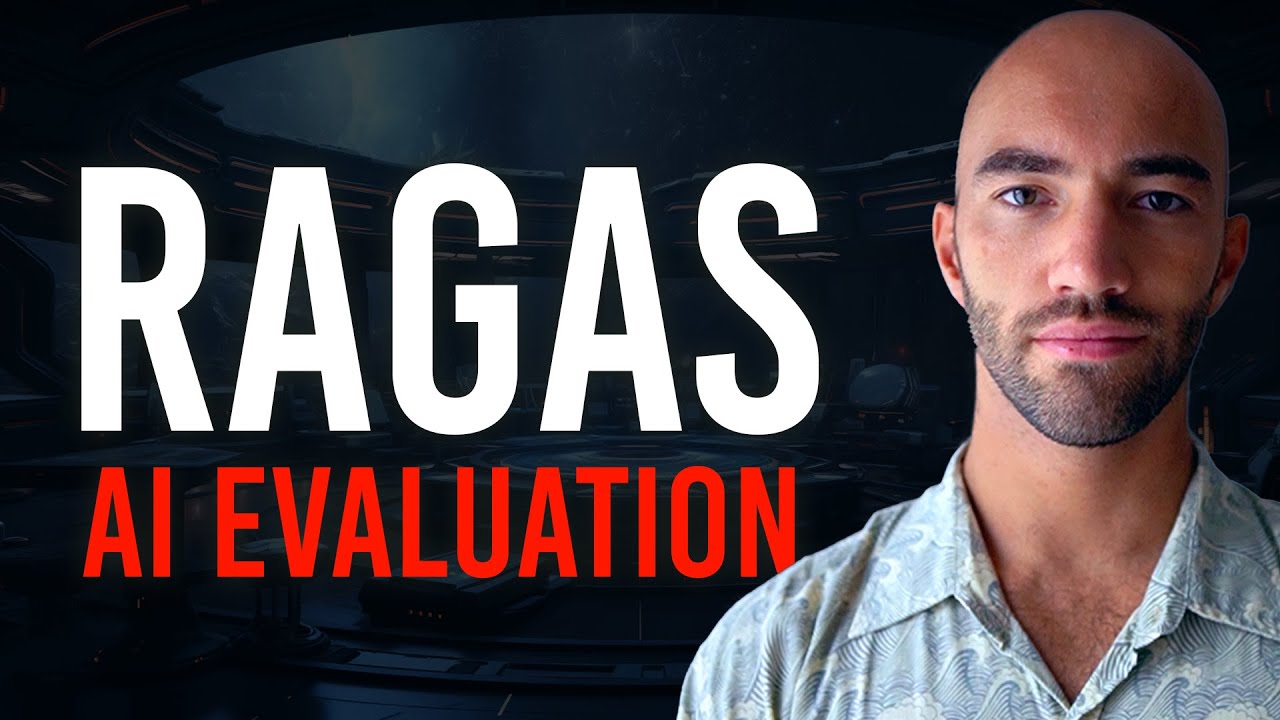The video discusses the implementation of RAGAS for evaluating conversational agents in terms of information retrieval and answer generation. It demonstrates how to set up evaluation pipelines, generate evaluation data sets, and interpret metrics like faithfulness, answer relevancy, contextual recall, and precision to enhance the development of conversational agents.
In the video, the focus is on metric-driven agent development, specifically using RAGAS to evaluate agents in terms of information retrieval and answer generation. The approach involves adding evaluation to pipelines to iterate more quickly on agent and RAG performance. The setup includes an agent using a CLAE-3 LLM model connected to a RAG tool, search tool, and retrieval pipeline. The RAG pipeline consumes a query from the search tool, transforms it into an embedding using Cohere V3, retrieves relevant contexts from a vector database, and passes them back to the agent for generating responses.
The evaluation process in RAGAS involves assessing both the retrieval and generation components of the conversational agent. The notebook provided in the video showcases how to integrate RAGAS for evaluation. By setting return intermediate steps to true, one can extract the necessary context for evaluation. The data set format for evaluation includes the original question, relevant context, ground truth answer, question type, and episode ID. The evaluation data set is automatically generated by RAGAS, although some manual tweaking may be required.
After setting up the evaluation data, the video demonstrates how to iterate through questions, ask them to the agent, and collect the context, generated answer, and ground truth answer for evaluation. The evaluation metrics used include faithfulness, answer relevancy, contextual recall, and contextual precision. Faithfulness measures the factual consistency of answers with the retrieved context, while answer relevancy assesses how well generated answers align with the original question. Contextual recall and precision focus on evaluating the retrieval component of the RAG pipeline.
The retrieval metrics, contextual recall, and precision are elaborated, detailing how they are calculated and what they signify in evaluating the retrieval pipeline. Contextual recall measures how many relevant records have been returned by the pipeline, while contextual precision looks at the ratio of relevant results returned to the total results. The video explains the implications of varying the ‘K’ value in recall calculations. The generation metrics, faithfulness, and answer relevancy are also discussed, highlighting their qualitative nature in assessing answer quality and relevance to the original question.
In conclusion, the video emphasizes the importance of a metrics-driven approach in agent development using RAGAS. By integrating evaluation into the development process, agents can be iterated upon more quickly and reliably. The video provides a detailed walkthrough of how to set up RAGAS for evaluation, generate evaluation data sets, and interpret the metrics obtained. Understanding and leveraging metrics such as faithfulness, answer relevancy, contextual recall, and precision can lead to more effective and efficient development of conversational agents.
